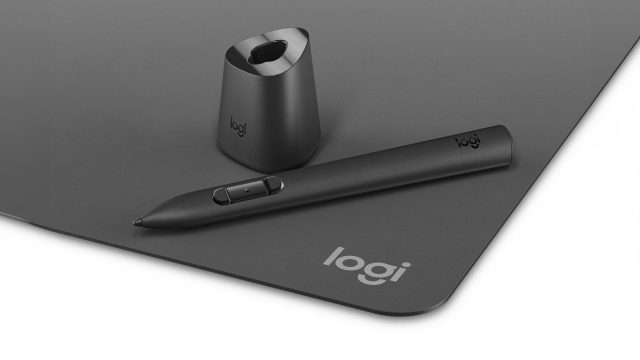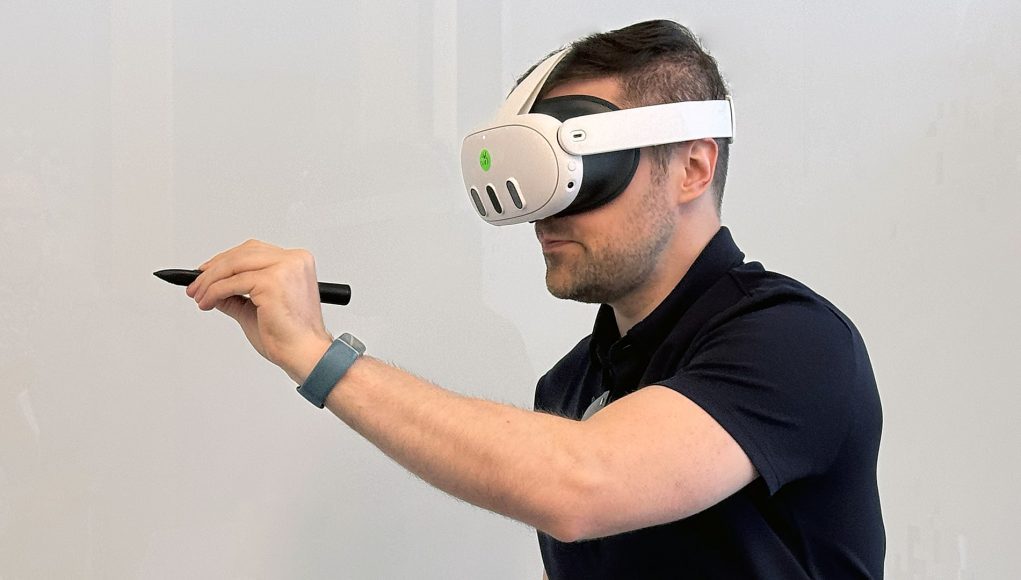Logitech today announced the launch of the MX Ink stylus. This officially supported Quest accessory aims to give users a more precise and natural input method for applications like design, drawing, and visualization.
On Quest, hand-tracking is great as a low-barrier input for basic cursor-like input, while controllers are great as a flexible and high performance input for gaming and applications that need lots of distinct inputs like buttons and sticks. But now Quest headsets will have a third option: the MX Ink stylus from Logitech.

The MX Ink stylus is available starting today, priced at $130 for the stylus alone, or $170 for the stylus and the MX Inkwell accessory—a convenient place to store and charge the stylus. There’s also the MX Max ($50) which offers a prime drawing surface if you’re going to use it for 2D input on a desk. The stylus supports Quest 2 and Quest 3-series headsets.
While the stylus is certain to be a more niche input device for the headset, it caters to a subset of VR apps which are focused on creation. That would be apps for things like 3D modeling, painting, sculpting, and drawing—the kind of apps where being able to point to a very specific point in space feels way more natural with a stylus than a controller.
When I got to try an early version of the MX Ink stylus earlier this year, I was impressed with the way it was integrated into the overall Quest experience. As an official ‘Made for Meta’ accessory, the headset acknowledges that you’re pairing a stylus (rather than controller) and walks you through the procedure.

Once it’s paired, it works just like you’d hope: you see a 3D model of the stylus in front of you, and you can use it as a basic pointer in the standard Horizon OS interface. The buttons on the stylus emulate the buttons on the controller, so you can do things like drag-to-scroll and press buttons. You’ll also see a battery-life readout in the same place you’d normally expect to see it for the controllers.
[ir]
While the stylus does a reasonably good job of emulating the controller, the real reason for this thing to exist is for apps that have been built especially with it in mind. Not only do these apps show a model of the stylus (or their own interpretation of it) they also support the pressure-sensitive tip and pressure-sensitive side button, which allow for smooth input for parameters like brush stroke size.

Logitech currently lists the following applications as supporting the MX Ink stylus, and tells us “more are being added all the time”:
- Arkio
- Adobe Substance 3D Modeler
- ENGAGE XR
- Figmin XR
- FundamentalVR
- Gravity Sketch
- Gesture VR
- Hololight
- Painting VR
- Osso VR
- Realize Medical
- Vermillion
- THRASHER
- Open Brush
- Elucis
- ShapesXR
- VisionWEARx







